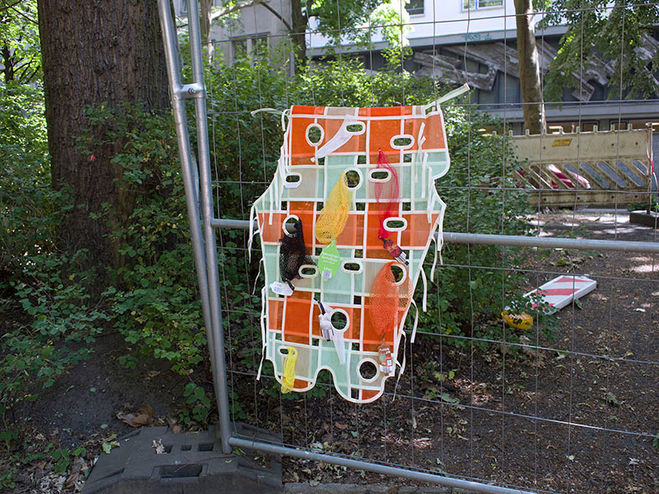THE WATERGENICS FELLOWSHIP
The Watergenics Fellowship is a private grant offered by Watergenics GmbH to entrepreneurs, engineers, scientists, and artists, which think & act for the sustainable future of the world economy. The grant offers free working space and access to amenities at Watershed – the Watergenics Headquarters located in Germany’s epicenter of vision and entrepreneurship – Berlin Kreuzberg.

WHAT IT'S ABOUT
We invite creative minds to share with us 770 square meters open working space in a restored 1906 building in late Prussian industrial style. 4 labs, 2 working studios, an open atelier, and a library. All this is for you to think through, and build up, solutions for the future of the world economy.
The fellows will work alongside the Watergenics team, becoming part of the community for sharing and learning from everyone’s expertise. The broader the background and the more passionate, the better. Let us share the tools and ideas to shape a better future for future generations.
THE FELLOWSHIP IS GRANTED FOR A PERIOD OF UP TO SIX MONTHS,TO FOUR SIMULTANEOUS RESIDENCES:

ENTREPRENEUR IN RESIDENCE
Is aimed at entrepreneurs with a proven record in business (founded at least one company with over $ 1mil in investment, and trackable customer acquisition record). The business activity should be focused on the concept of sustainability, broadly defined.
SCIENTIST IN RESIDENCE
Is aimed at, but not restricted to, scientists from the fields of economics, ecology, physics, mathematics, chemistry, psychology, history, social and cultural anthropology, sociology, and philosophy, who think and study the world of tomorrow.


ENGINEER IN
RESIDENCE
Addresses open-mind engineers from all fields of engineering to share their passion with us. We especially envisage the fields of water engineering, optics, mechanical engineering, machine learning engineering & materials engineering.
ARTIST IN
RESIDENCE
Addresses musicians, painters, sculptors, but also writers, visual artists and journalists with a proven record of work, or a bold project.


The resident is welcomed to develop an already existing concept, or to search for a new one, or simply to find inspiration in science, engineering and business. At the end of the scholarship, the resident is expected to present the results of her or his activity in the form of a REHash containing a business model, a PoC, a scientific working-paper, or a public exhibition or concert. The REHash could involve members of the Watergenics team.
ENTREPRENEUR IN RESIDENCE
Empower
Growth
Enrico Vito Romano, is a Berlin-based law graduate with a M.Sc. in Sustainability Entrepreneurship and Innovation from ESCP Business School. He has worked in international business and sustainability consulting, including B-Corp certification and impact assessments at Isla Urbana in Mexico City. Fluent in Italian, English, and Spanish, Enrico leverages his consultancy background to advance strategic planning in the industrial water sector. At Watergenics (March–August 2025), he explores ESG-driven business opportunities in water technology with partners such as S&P, Moody’s, and Accenture.
ENRICO VITO ROMANO

SCIENTIST IN RESIDENCE

Empower
Growth
Jérôme Roeser, is a materials chemist with 15+ years of experience in porous nanomaterials, catalysis, and energy applications. He earned his Ph.D. in Chemistry from the University of Strasbourg, followed by a postdoctoral fellowship at the Max Planck Institute in Potsdam and further research at TU Berlin. His work has been published in leading journals such as JACS and Nature Chemistry. Passionate about using AI to accelerate sustainable scientific discovery, Jérôme now focuses on modeling nanostructures in aqueous solutions. At Watergenics (July–September 2025), he will collaborate with chemists, data scientists, and developers to advance real-time monitoring for industrial water management.
JÉRÔME ROESER,Ph.D.
ARTIST IN RESIDENCE
Empower
Growth
Mimoko Wakatsuki is a Berlin-based artist whose practice predominantly involves textile and mixed media. Through her artistic research, she discovered that mesh materials can function as dividers, and she explores this concept to examine the complex, often hidden connections between individuals and their environments. At Watergenics, Mimoko used her textile- and mesh-based art practice to reveal the invisible flows that define human environments & water ecosystems. Through her work, she connected science, sustainability, and sensory experience, opening up new ways to think about water.
MIMOKO WAKATSUKI






